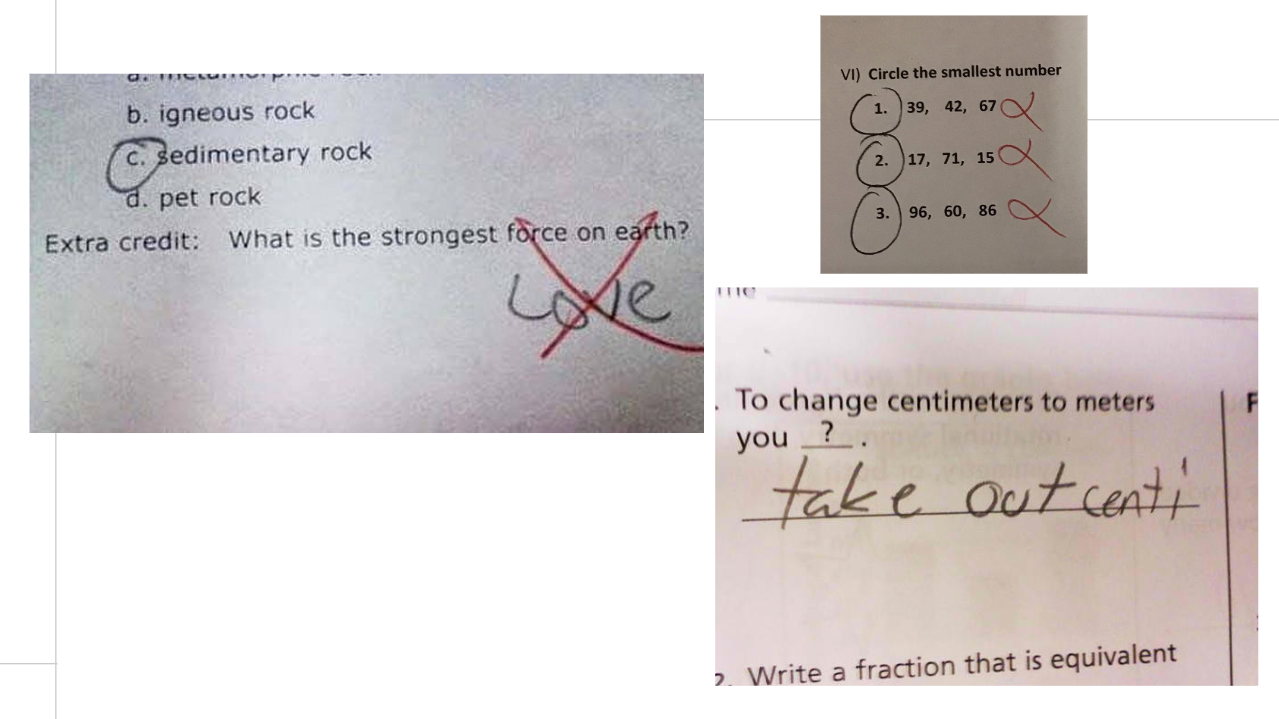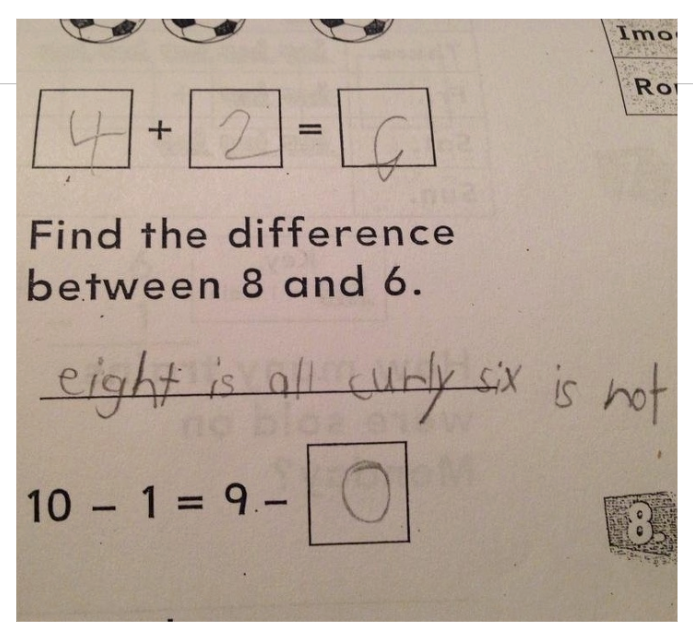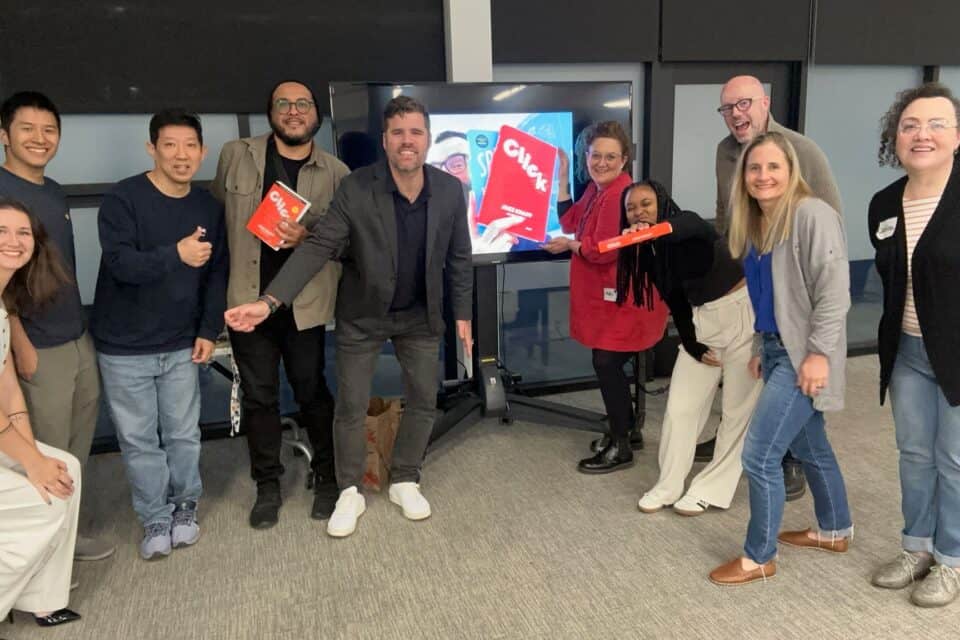How playfulness increases creativity and productivity.
Many of us have adopted the mantra “work hard, play hard,” as a method to construct our work and social lives around; “the harder I work, the harder I get to play.” While this can be an effective way to find balance in our lives and motivate us to get our work done so we can then enjoy ourselves, it lends itself to only allowing fun when we aren’t at work.
What if you could collaborate with your inner child to bring a playful mindset to work?
We argue that not only can you, but you should.

Not only do these examples serve as reminders to not take ourselves too seriously, but they also wake us up to the realization that we have lost touch with the genius found within our inner child. Why is this important?
To make the most of our creativity, we need to unlock our sense of playfulness again.
We all still have the inner child, we just need to access it. Luckily, there is a shortcut to do so: focus on verbs rather than nouns in our thinking and while we work.
Work in Verbs
As professionals, we usually focus on nouns more than we do verbs. In other words, we tend to assign tasks and work expectations with rigid words and concepts (adult brain) that limit our creativity and productivity (child brain). It can be difficult to keep our adult-minds from taking over more than they should. But with a seemingly simple change of language, we open ourselves up to more possibilities and overall success.

Let’s consider a few noun-centered ways of being vs. verb-centered ways of being:
- “We need to focus on [insert industry jargon and acronym].” vs. “Let’s imagine what is possible.”
- “We need the best product ASAP.” vs. “Let’s prototype together.”
- “This is what the user wants.” vs. “I am going to listen to the user’s needs.”
- “That will never work” vs. “I’m curious. Time to gather feedback!”
- “What about our competitors?” vs. “Let’s create magic for the customer.”
- “Our company needs better design.” vs. “Let’s all take 5-minutes to sketch a concept.”
Kids are masters at living in the verb. Just watch a few of them doing arts and crafts or playing on a playground. They are verbing more than they are nouning. They care less about being an official “artist,” and they don’t seem to even care about the final product of their creations. They are just “making art” or “building something.” There is an emphasis on the joy of the process, rather than obtaining a specific title or end result.

Kids at Work
I observed the child’s mind at play while briefly babysitting a friend’s child, James, while he went out to run errands. James simply sat for an hour doodling — emphasis on the verb, “doodling.” He did not care about a noun like “the final sketch,” or “the design,” which we as professionals seem to focus on too much. There he was, “doodling.” I could have hung his doodles on the wall or burned them in the fireplace — it would have all been the same to him.

For James, art and creation is a form of play. When we are playing, it is something we do for its own sake, rather than the purpose of praise, results, or politics. Kids are like monks in this way. They can focus solely on the activity at hand and become a more open channel for ideas and creativity. This beginner’s mind is unlocked. They are in the verb rather than obsessing on the noun on constraining themselves.
Play Increases Success
Just like children learn best when they’re playing, so do adults. According to a study by the journal Procedia–Social and Behavioral Sciences, “Fun and enjoyment could prove to be as beneficial and important as it is currently considered in children’s learning.” When we enjoy the task we are doing, we are then in a more relaxed mood and more receptive to the information we are learning or retaining. This directly translates to more achievement in the workplace.
Studies show that when you have fun at your job, you are more successful. Happier employees are 12–20% more productive in the workplace, according to a research by University of Warwick’s Centre for Competitive Advantage in the Global Economy. Having fun also improves communication and collaboration, according to Dimensional Research.
So how do we incorporate more of the child’s mind at work?
Quieting the Adult Mind
When leading meetings or facilitating workshops, I have found that the adult mind’s over-emphasis on nouns is what causes us to spin into arguments that prevent us from designing new solutions or innovating.
There is a time and a place for locking in our adult mind, but so much of our work deserves boundless creativity. We break down the walls when we embody a verb instead of holding tight to a noun.
If each person in the room brings their child’s mind when we do creative work, we are all able to explore ideas freely, without obsessing on how “perfect” the results might be. We are ready to go on a journey to find the right idea instead of trying to get the idea just right.

I start my innovation or design meetings with those images of kid’s homework because the point is to detach ourselves from the results. We can all take it a step further and have fun with the verbs we all love so much. Designing, making, collaborating, dreaming, laughing, caring, and playing like we are kids again.
Don’t we want these verbs in more of our meetings?
Want to learn more about incorporating the child’s mind in meetings?
Voltage Control facilitates design thinking workshops, innovation sessions, and Design Sprints. Please reach out at info@voltagecontrol.com for a consultation.





